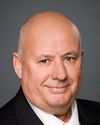For the Canadian Society for Medical Laboratory Science, it's definitely to fill a void. The void is not quite as alarming as we had expected, but the domestic students enrolled in programs are not enough to equal retirements. There's definitely a net labour market loss with retirements, so newcomers to Canada are definitely filling those gaps.
We hear stories about people who can't set a vacation schedule until they get new grads or those who have been internationally educated. Our people are very tapped for time in the laboratories, and we're getting to the point where the shortages will be felt across the board. There will be delays in surgery, things like that, because of delays in lab testing.
The incoming immigrants are definitely important. We're not just providing a service in case they want to qualify; it's a definite need in our profession.





